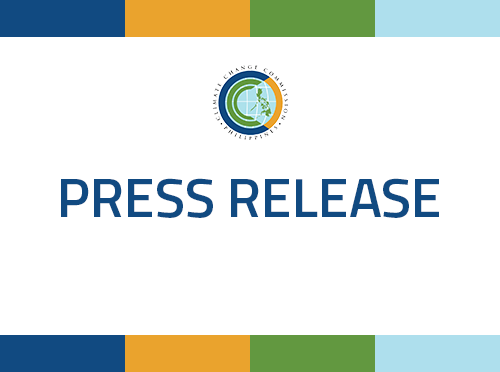
May 05, 2020 Tuesday

MANILA 6 MAY 2020 – House Deputy Speaker and Antique Congresswoman Loren Legarda today commended and expressed support to the Bangko Sentral ng Pilipinas (BSP) in promulgating the Sustainable Finance Framework, contained in BSP Circular No. 1085, s. 2020, stating that the framework will help advance the country’s growth towards a greener and more sustainable development path.
The Circular was issued following approval by the Monetary Board (through Resolution No. 415, March 19, 2020) of a sustainable finance policy framework that sets out expectations on the integration of sustainability principles, including those covering environmental and social (E&S) risks, in banks’ corporate governance and risk management frameworks, as well as in their strategic objectives and operations.
“I have long expressed the view that despite the Philippines being a highly vulnerable country to climate change, we have yet to fully unlock our massive potential for green investments. The BSP’s circular on the Sustainable Finance Framework is a welcome policy direction for our banks and financial institutions to enshrine sustainability within their systems of governance and operations,” said Legarda, who authored the Renewable Energy Act, Climate Change Act, and the People’s Survival Fund Act.
"As our country and the whole world slowly reopen the economy from closures to the COVID-19 pandemic through financial stimulus packages, we hope that the new policy will lead to the financing of more investments on renewable energy, environmental protection, climate change adaptation and mitigation, and other low carbon and sustainable initiatives,” Legarda added.
With the issuance of the Circular, the Sustainable Finance Framework is added in the Manual of Regulations for Banks (MORB). It declares as a policy that the BSP is “cognizant that climate change and other environmental and social risks could pose financial stability concerns” and that “physical and transition risks arising from climate change could result in significant societal, economic and financial risks affecting the banks and their stakeholders.”
It also recognizes the critical role of the financial industry in pursuing sustainable and resilient growth by enabling environmentally and socially responsible business decisions consistent with the Philippine Development Plan (PDP). The framework shall be applied to all banks, while branches of foreign banks may adopt relevant policies and strategies of their head office that are consistent with the Circular.
Legarda said that the Sustainable Finance Framework will complement existing efforts to enhance the country's resilience against climate impacts through climate finance access.
Legarda, as Member of the Green Climate Fund (GCF) Board, said that the Philippines’ very first country proposal to the GCF secured approval last year of a P500-million grant for multi-hazard impact-based forecasting and early warning systems. This was followed by the country’s inclusion in a multi-country proposal to generate private sector investments on renewable energy and energy efficiency. Three readiness and preparatory support programs worth almost $1.7 million are also underway to enhance the capacities of the Land Bank of the Philippines as accredited entity and other stakeholders involved in securing climate finance once national approval processes are completed.
She added that the Climate Change Commission (CCC), as the National Designated Authority to the GCF, has been instrumental in facilitating climate finance access, but should now also work closely with the Bangko Sentral to help our banks and financial institutions adopt the framework and transform our economy.
“Amid this COVID-19 pandemic and climate crisis, as the world clamors for a healthier planet as the new normal, I remain optimistic that these efforts and many more can sustain our gains towards resilience,” Legarda concluded.